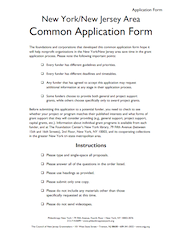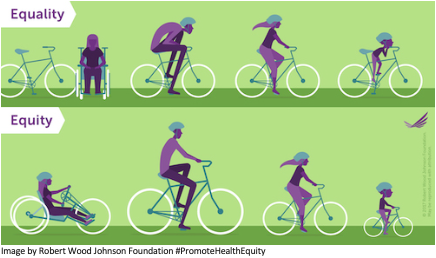Site Search
- resource provided by the Forum Network Knowledgebase.
Search Tip: Search with " " to find exact matches.
“These are really fun gatherings!” - Nora Jones, Pincus Family Foundation
Join your fellow CNJG members and CNJG staff, every first Friday of the month, for a 60-...
“These are really fun gatherings!” - Nora Jones, Pincus Family Foundation
Join your fellow CNJG members and CNJG staff, every first Friday of the month, for a 60-...
FAQs for Benefit Survey
What is the New Jersey Foundation Benefits & Salary Summary Report?
Developed exclusively for CNJG members, the New Jersey Foundation Benefits & Salary Summary Report presents...
When considering how to improve health outcomes for low-income individuals, most people think about providing access to good medical care and keeping the cost of that care as low as possible. What people rarely think about is the connection between...
On April 24, 2008 a $19 million landmark award was announced that will strengthen Newark public charter schools. The award comprises grants from seven funders including four national family foundations -- the Bill & Melinda Gates Foundation, Doris...
CNJG Member survey ranking which issues are most important to them.

More than a decade ago, the Council of New Jersey Grantmakers and Philanthropy New York spearheaded a project to develop common application and report forms to help streamline the grant...
The City of Newark and Newark Philanthropic Liaison are working closely with several consortia of nonprofits to address some of the City’s most critical challenges. Grantmakers with an interest in Newark are connecting with these groups to better...
CNJG is helping track philanthropy’s response to the coronavirus pandemic by continuing our “Get on the Map” Campaign partnership with Candid who has launched a new ...
A CNJG member queried the Health & Aging listserves asking for sample letters of inquiry. This document includes a few responses from fellow members. If you would like to add yours to this list, please email...
The Council of New Jersey Grantmakers’ offers listserve services as a benefit of CNJG membership.
CNJG’s listserves facilitate ongoing group e-mail discussions among subscribed members. Members can share information and expertise, ask...

These articles are curated from news sources, philanthropic-focused...
2026 CNJG Membership Renewal
Thank you for your membership investment with CNJG!
We continue using our contactless renewal process for the 2026 membership year. We no longer mail renewal notices. The “primary contact” for each member...
Nonprofit Finance Fund's Annual Survey chronicles the challenges facing the nonprofit sector and calls out some of the targeted investments we can start to agree...
